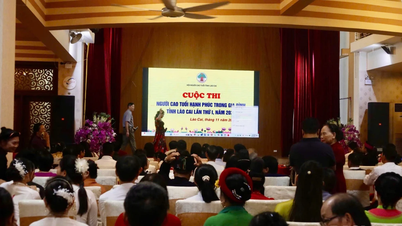It is estimated that with about 8 million notarized documents each year, the application of electronic notarization can save society hundreds of billions of dong in costs for storing and processing documents.
The above information was given at the workshop "The role of digital signatures and trusted services with electronic notarization" organized by the National Electronic Authentication Center (NEAC), the Ministry of Science and Technology in coordination with the Vietnam Notary Association on September 19.
Platform for ensuring trust in electronic transactions
Ms. To Thi Thu Huong - Director of NEAC commented: “In an era where data becomes a new resource and digital transactions become popular, ensuring digital trust is a prerequisite. In Vietnam, digital signatures and trusted services are not only technical tools, but also the foundation to ensure trust in electronic transactions, shaping the digital economy , digital government and digital society."
According to Ms. Huong, the workshop was held in the context of the law on notarization creating a legal corridor for electronic notarization and Decree 23/2025/ND-CP of the Government recently issued on electronic signatures and trusted services establishing a complete legal framework for trusted services (digital signatures, data message authentication, timestamping, secure data sending and receiving services...).
These regulations are an important bridge to create a legal foundation for electronic notarization to operate effectively, ensuring that all electronic notarized documents have the same legal value as paper documents.

According to the Law on Electronic Transactions 2023, a digital signature is an electronic signature that uses an asymmetric key algorithm to authenticate the signatory and confirm the signatory's acceptance of the signed content. A digital signature ensures authenticity, integrity, and non-repudiation, so the Law on Electronic Transactions affirms that a digital signature has the same legal value as a handwritten signature in traditional transactions, and the Law on Notarization 2024 stipulates that an electronic notarized document is valid from the time it is signed with the digital signature of a notary and the digital signature of a notary practice organization.
As electronic transactions become more popular, related services are also brought along, one of which is trust services. The Law on Electronic Transactions stipulates 3 types of trust services including: Timestamping service; Data message authentication service and Public digital signature authentication service: .
Decree No. 23/2025/ND-CP has detailed and specific regulations on trusted services, including conditions that must be complied with regarding human resources, technology, finance, etc. if businesses want to do business in this type of service.
For the field of electronic notarization, trusted service is an effective tool, helping notaries and notary organizations simplify business processes, gradually convert traditional notarization transactions from the real environment to the digital environment, and improve the efficiency of electronic notarization activities.
Experts say that the benefits of electronic notarization for people and society are primarily time and cost savings. People can notarize some types of documents online right at home, instead of having to go to the notary office many times. Electronic records are processed quickly, and notarized documents can be issued almost immediately after the notary signs them digitally.
In addition, electronic notarization will also increase security and transparency. Each electronic notarized document is accompanied by a digital signature and time stamp, which can be checked online to determine authenticity. Records are stored in electronic form, avoiding the risk of loss, damage or counterfeiting.
Electronic notarization is also connected with many other public services and electronic transactions. Electronic notarized documents can be used directly in business registration procedures, real estate transactions, banking, etc. without having to submit additional paper copies, helping to reduce duplication and create maximum convenience for people.
It is estimated that with about 8 million notarized documents each year, the application of electronic notarization can save society hundreds of billions of dong in costs for storing and processing documents.
Towards synchronous implementation of electronic notarization
As the national electronic certification service provider (RootCA), NEAC commits to accompany relevant agencies and units in implementing electronic notarization.
The representative of NEAC affirmed that it will coordinate with relevant units of the Ministry of Justice and the Vietnam Notary Association in disseminating, training, and improving the capacity of notaries to use digital signatures, creating a technical and legal foundation ready for the implementation of electronic notarization. At the same time, the National Center for Electronic Authentication is responsible for disseminating and guiding people about the benefits of digital signatures and reliable services, encouraging the use of personal digital signatures to promote the digital economy and digital society, aiming for the goal of 50% of adults having digital signatures by the end of 2025.

In addition to the policy content, delegates attending the Workshop also directly participated in discussions and listened to representatives of organizations providing digital signature certification services (CA) present their papers, introduce technical solutions, share implementation experiences and guide notaries on how to register and use digital signatures and trusted services in the field of electronic notarization, helping notaries access technology applied in their daily work.
Delegates agreed that the implementation of electronic notarization to simplify procedures has a basic legal framework for implementation. In the immediate future, digital signatures and trusted services have been affirmed to have legal value and basically meet the needs of people and businesses, helping people save time and reduce paperwork.
In the next phase, it is necessary to accelerate the implementation of electronic notarization, deploying the legal framework as needed to comply with the Party and State's digital transformation policy, meeting the needs of society, and not waiting until all regulations are fully completed before starting./.
Source: https://www.vietnamplus.vn/app-dung-cong-chung-dien-tu-giup-tieu-kiem-cho-xa-hoi-hang-tram-ty-dong-post1062857.vnp







































![[Video] Hue Monuments reopen to welcome visitors](https://vphoto.vietnam.vn/thumb/402x226/vietnam/resource/IMAGE/2025/11/05/1762301089171_dung01-05-43-09still013-jpg.webp)



































































Comment (0)